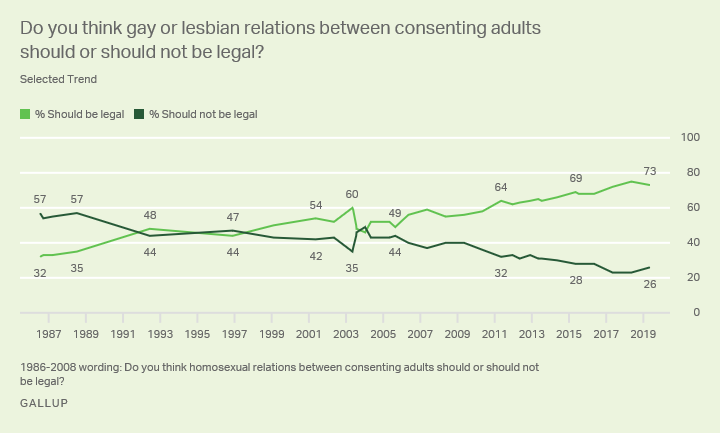Revealing The Truth About AI Thinking: A Critical Examination Of AI's Capabilities

Table of Contents
Defining "Thinking" in the Context of AI
Before examining AI's capabilities, we must define "thinking." From a human perspective, thinking involves consciousness, self-awareness, reasoning, problem-solving, and learning – complex processes intertwined with emotions and experiences. However, defining "AI thinking" is far more nuanced. We must differentiate between narrow AI (designed for specific tasks) and general AI (hypothetical AI with human-level intelligence).
-
The Turing Test and its Limitations: The Turing Test, proposed by Alan Turing, assesses a machine's ability to exhibit intelligent behavior equivalent to, or indistinguishable from, that of a human. However, it's criticized for focusing on mimicry rather than genuine understanding. Passing the Turing Test doesn't necessarily equate to true AI thinking.
-
Levels of AI Sophistication: We can categorize AI systems based on their cognitive abilities:
- Reactive Machines: These AI systems react directly to stimuli without memory of past experiences (e.g., Deep Blue, the chess-playing AI).
- Limited Memory: These systems can use past experiences to inform current decisions (e.g., self-driving cars).
- Theory of Mind: This hypothetical level of AI would understand that others have beliefs, desires, and intentions different from its own – a crucial aspect of human interaction currently lacking in AI.
- Self-Awareness: This represents the highest level of AI, possessing consciousness and self-understanding, which remains purely theoretical.
-
Algorithms and Data: The Foundation of AI Thinking: AI's apparent "thinking" is fundamentally shaped by algorithms and the vast amounts of data they are trained on. These algorithms process information and identify patterns, leading to outputs that might appear intelligent, but are ultimately a product of mathematical operations.
The Capabilities of Current AI Systems
Current AI systems excel in specific domains, demonstrating impressive capabilities in pattern recognition, data analysis, and problem-solving.
-
Successful AI Applications: AI's strengths are evident in various applications:
- Image Recognition: AI algorithms can identify objects, faces, and scenes with remarkable accuracy.
- Natural Language Processing (NLP): AI powers chatbots, language translation tools, and text summarization systems.
- Game Playing: AI systems like AlphaGo have defeated human champions in complex games like Go, showcasing superior strategic thinking within a defined rule set.
-
Limitations of Current AI: While impressive, current AI approaches, like deep learning, have limitations:
- Data Dependence: AI relies heavily on massive datasets, and its performance degrades significantly with limited or biased data.
- Computational Power: Training sophisticated AI models requires substantial computational resources.
- "Black Box" Problem: The complexity of deep learning models makes it difficult to understand their decision-making processes, raising concerns about transparency and accountability.
The Limitations of Current AI Systems
Despite advancements, current AI systems lack crucial aspects of human intelligence:
-
Context, Nuance, and Common Sense: AI often struggles with understanding context, subtleties in language, and common sense reasoning. What seems obvious to a human can be incomprehensible to an AI.
-
Creativity, Originality, and Emotional Intelligence: AI systems lack genuine creativity, originality, and emotional intelligence. They can generate creative outputs based on patterns in their training data but cannot truly innovate or understand emotions.
-
Further Limitations:
- Generalization Challenges: AI systems trained for one task often struggle to generalize their knowledge to other domains.
- Ethical Concerns: AI bias and algorithmic fairness are major concerns, as AI systems can perpetuate and amplify existing societal biases.
- Misuse Potential: The potential for AI misuse, such as in autonomous weapons systems, necessitates careful consideration and responsible development.
The Future of AI Thinking: Exploring the Possibilities
The future of AI thinking is full of both promise and peril. Research into artificial general intelligence (AGI) aims to create AI with human-level intelligence, capable of performing any intellectual task a human can.
-
Potential Advancements: Ongoing research in cognitive architectures and neural networks aims to develop more robust and adaptable AI systems.
-
Future Implications:
- Benefits: AGI could revolutionize various fields, from medicine and science to education and environmental sustainability.
- Risks and Challenges: The development of AGI raises significant ethical and societal concerns, requiring careful planning and regulation.
- Continued Critical Examination: The ongoing critical examination of AI’s capabilities is essential to ensure responsible innovation and prevent unintended consequences.
Conclusion
This critical examination of AI thinking reveals that while current AI systems demonstrate impressive capabilities in specific domains, they fall short of true human-level intelligence. AI excels at pattern recognition and problem-solving within defined parameters, but lacks the general intelligence, common sense reasoning, and emotional intelligence of humans. The future of AI thinking remains uncertain, presenting both exciting possibilities and significant challenges. The ongoing debate on AI thinking demands responsible development and a clear understanding of its limitations.
Call to Action: Continue to explore the fascinating world of AI thinking. Stay informed about the latest advancements and ethical considerations surrounding AI development. By engaging in critical discussions and fostering responsible innovation, we can harness the power of AI while mitigating its potential risks.

Featured Posts
-
 Pete Rose Pardon Will Trump Overturn The Baseball Betting Ban
Apr 29, 2025
Pete Rose Pardon Will Trump Overturn The Baseball Betting Ban
Apr 29, 2025 -
 The Rise Of Wildfire Betting A Troubling Trend In Los Angeles
Apr 29, 2025
The Rise Of Wildfire Betting A Troubling Trend In Los Angeles
Apr 29, 2025 -
 Willie Nelson Documentary Tops Austin News This Week
Apr 29, 2025
Willie Nelson Documentary Tops Austin News This Week
Apr 29, 2025 -
 Kentuckys Louisville Faces State Of Emergency Following Devastating Tornado And Expected Flooding
Apr 29, 2025
Kentuckys Louisville Faces State Of Emergency Following Devastating Tornado And Expected Flooding
Apr 29, 2025 -
 Pw Cs Controversial Withdrawals A Dozen Countries Affected
Apr 29, 2025
Pw Cs Controversial Withdrawals A Dozen Countries Affected
Apr 29, 2025
Latest Posts
-
 Uk Courts Definition Of Woman Impact On Sex Based Rights And Transgender Individuals
Apr 29, 2025
Uk Courts Definition Of Woman Impact On Sex Based Rights And Transgender Individuals
Apr 29, 2025 -
 Gender Identity And The Supreme Court Trans Rights And Gender Critical Responses
Apr 29, 2025
Gender Identity And The Supreme Court Trans Rights And Gender Critical Responses
Apr 29, 2025 -
 Public Sector Pension Reform Addressing The Growing Financial Risk
Apr 29, 2025
Public Sector Pension Reform Addressing The Growing Financial Risk
Apr 29, 2025 -
 The Impact Of Lgbt Legal Figures On Modern Lgbtq Rights
Apr 29, 2025
The Impact Of Lgbt Legal Figures On Modern Lgbtq Rights
Apr 29, 2025 -
 Are Public Sector Pensions Putting A Strain On Taxpayers
Apr 29, 2025
Are Public Sector Pensions Putting A Strain On Taxpayers
Apr 29, 2025
